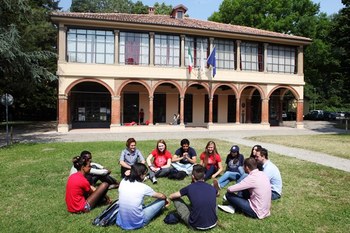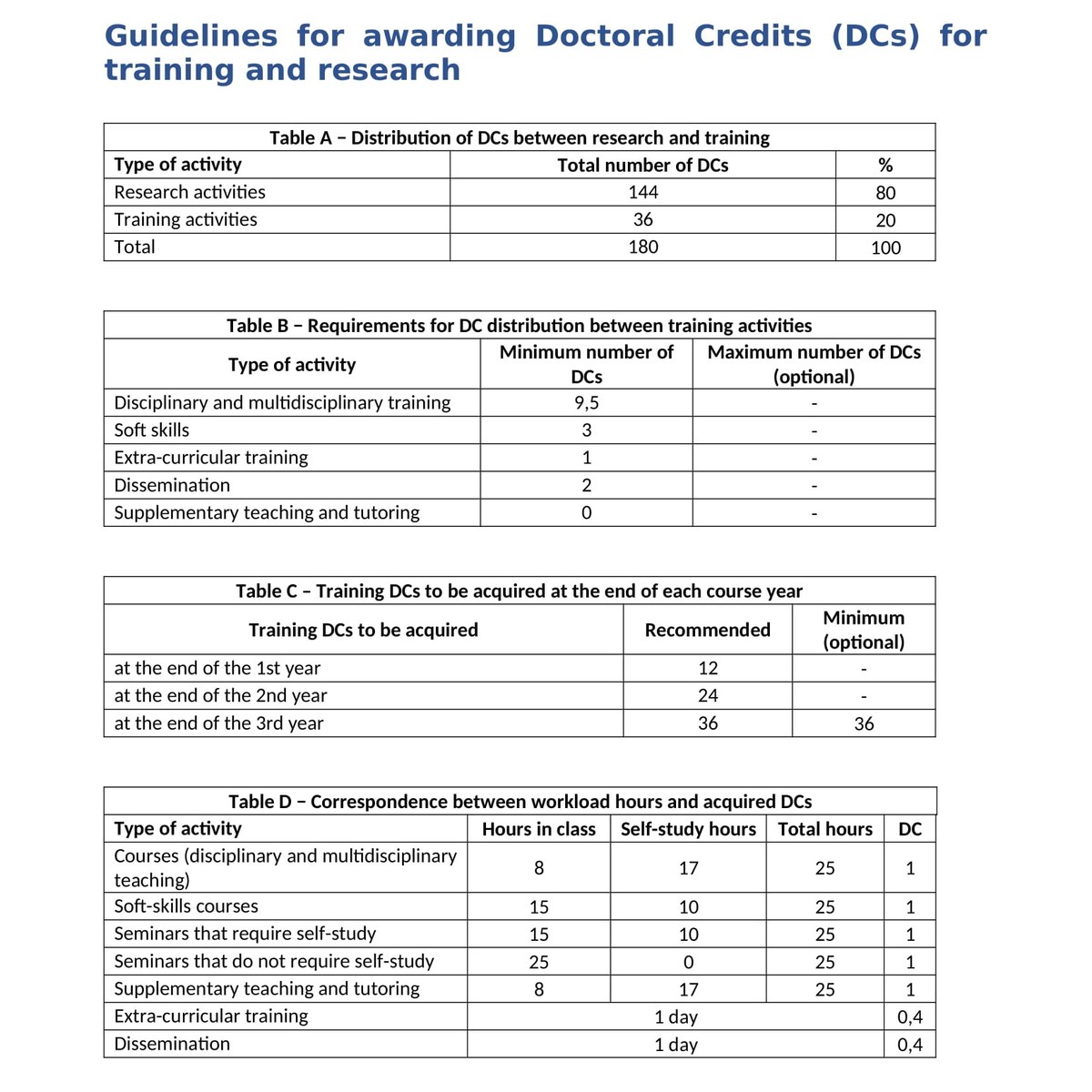Activities
PhD organization, requested activities and training

Our program offers top-level research training in a multidisciplinary research environment with a broad spectrum of methodologies and is aimed at training highly motivated candidates for both academic and applied career paths.
PhD students are required to attain at least 180 credits by participating in research activities, training, and courses throughout their PhD careers as indicated below:
- Research activities: 144 credits (80%)
- Training and courses: 36 credits (20%)
Guidelines for awarding Doctoral Credits (DCs) for training and research are given in the below tables. PhD students can flexibly develop their personalized program under the supervision of their tutors by choosing to get more credits in the type of activities that better suit their research interests and projects as well as their future plans.
To have their credit recognized by the PhD academic board, PhD students are required to keep documentation for each activity. For research activities, they need to follow the guidelines provided here. For training and courses, they need to keep documentation regarding the content of the activity (e.g., the program) and a certificate of attendance. On a regular basis (at least once per year), the PhD academic board will evaluate each activity and assign the corresponding credits.
Furthermore, PhD students are required to complete a mandatory period abroad for at least six months (except those funded by the China Scholarship Council).

Tables with Doctoral Credits - PhD programme in Psychology at University of Bologna.